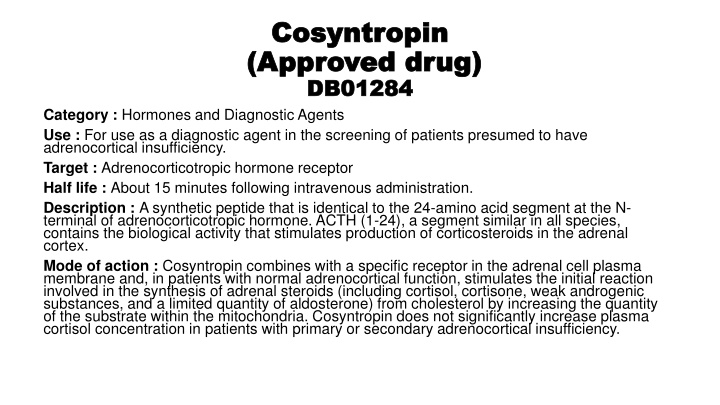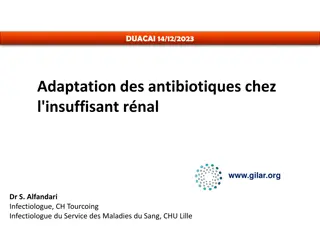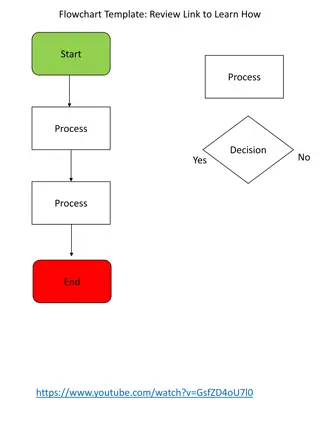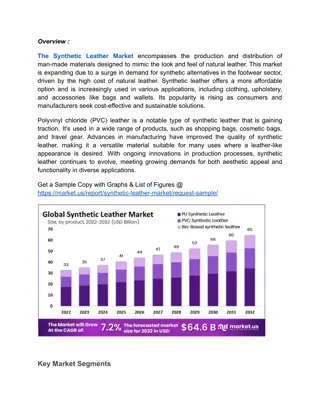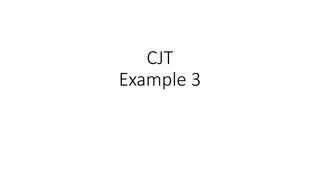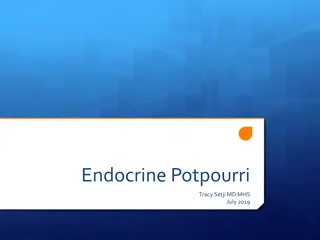Cosyntropin - Synthetic Peptide for Adrenocortical Insufficiency Screening
A synthetic peptide, Cosyntropin, is used for diagnosing adrenocortical insufficiency by stimulating adrenal steroid production. It exhibits full corticosteroidogenic activity similar to natural ACTH. Administered intravenously or intramuscularly, it rapidly absorbs and acts on the adrenal cortex. Cosyntropin is available under brands like Cortrosyn and Synacthen depot. It is indicated for the screening of patients suspected to have adrenal insufficiency.
Download Presentation

Please find below an Image/Link to download the presentation.
The content on the website is provided AS IS for your information and personal use only. It may not be sold, licensed, or shared on other websites without obtaining consent from the author.If you encounter any issues during the download, it is possible that the publisher has removed the file from their server.
You are allowed to download the files provided on this website for personal or commercial use, subject to the condition that they are used lawfully. All files are the property of their respective owners.
The content on the website is provided AS IS for your information and personal use only. It may not be sold, licensed, or shared on other websites without obtaining consent from the author.
E N D
Presentation Transcript
Cosyntropin Cosyntropin (Approved drug) (Approved drug) DB01284 DB01284 Category : Hormones and Diagnostic Agents Use : For use as a diagnostic agent in the screening of patients presumed to have adrenocortical insufficiency. Target : Adrenocorticotropic hormone receptor Half life : About 15 minutes following intravenous administration. Description : A synthetic peptide that is identical to the 24-amino acid segment at the N- terminal of adrenocorticotropic hormone. ACTH (1-24), a segment similar in all species, contains the biological activity that stimulates production of corticosteroids in the adrenal cortex. Mode of action : Cosyntropin combines with a specific receptor in the adrenal cell plasma membrane and, in patients with normal adrenocortical function, stimulates the initial reaction involved in the synthesis of adrenal steroids (including cortisol, cortisone, weak androgenic substances, and a limited quantity of aldosterone) from cholesterol by increasing the quantity of the substrate within the mitochondria. Cosyntropin does not significantly increase plasma cortisol concentration in patients with primary or secondary adrenocortical insufficiency.
Pharmacodynamics : Cosyntropin exhibits the full corticosteroidogenic activity of natural ACTH. Various studies have shown that the biologic activity of ACTH resides in the N- terminal portion of the molecule and that the 1-20 amino acid residue is the minimal sequence retaining full activity. Partial or complete loss of activity is noted with progressive shortening of the chain beyond 20 amino acid residue. For example, the decrement from 20 to 19 results in a 70% loss of potency. The pharmacologic profile of Cosyntropin is similar to that of purified natural ACTH. It has been established that 0.25 mg of Cosyntropin will stimulate the adrenal cortex maximally and to the same extent as 25 units of natural ACTH. Cosyntropin has less immunogenic activity than ACTH because the amino acid sequence having most of the antigenic activity of ACTH, i.e., amino acids 25-39, is not present in cosyntropin. The extra-adrenal effects which natural ACTH and Cosyntropin have in common include increased melanotropic activity, increased growth hormone secretion and an adipokinetic effect. These are considered to be without physiological or clinical significance. Absorption : Rapidly absorbed following intramuscular administration. Sequence : SYSMEHFRWGKPVGKKRRPVKVYP
Brands : Cortrosyn of Synacthen depot. CORTROSYN (cosyntropin) for Injection is a sterile Iyophilized powder in vials containing 0.25 mg of CORTROSYN (cosyntropin) and 10 mg of mannitol to be reconstituted with 1 mL of 0.9% Sodium Chloride Injec- tion, USP. Administration is by intravenous or intramuscular injection. Cosyntropin is 1 - 24 corticotropin, a synthetic subunit of ACTH. It is an open chain polypeptide containing, from the N terminus, the first 24 of the 39 amino acids of natural ACTH. Indication : CORTROSYN of patients presumed to have ad-renocortical insufficiency. Because of its rapid effect on the adrenal cortex it may be utilized to perform a 30-minute test of adrenal func-tion (plasma cortisol response) as an office or outpatient procedure, using only 2 venipunctures. Severe hypofunction of the pituitary - adrenal axis is usually associ-ated with subnormal plasma cortisol values but a low basal level is not per se evidence of adrenal insufficiency and does not suffice to make the diagnosis. Many patients with proven insufficiency will have normal basal levels and will develop signs of insufficiency only when stressed. For this reason a criterion which should be used in estab-lishing the diagnosis is the failure to respond to adequate corticotropin stimulation. When presumptive adrenal insufficiency is diagnosed by a subnormal CORTROSYN (cosyntropin) test, further studies are indicated to determine if it is primary or secondary. Primary adrenal insufficiency (Addison's disease) is the result of an intrinsic disease process, such as tuberculosis within the gland. The production of adrenocortical hormones is deficient despite high ACTH levels (feedback mechanism). Secondary or relative insufficiency arises as the result of defective production of ACTH leading in turn to disuse atrophy of the adrenal cortex. It is commonly seen, for ex-ample, as result of corticosteroid therapy, Sheehan's syndrome and pituitary tumors or ablation. The differentiation of both types is based on the premise that a primarily defective gland cannot be stimulated by ACTH whereas a secondarily defective gland is potentially functional and will respond to adequate stimulation with ACTH. Patients selected for further study as the result of a subnormal CORTROSYN be given a 3 or 4 day course of treatment with Repository Corticotropin Injection USP and then retested. Suggested doses are 40 USP units twice daily for 4 days or 60 USP units twice daily for 3 days. Under these conditions little or no increase in plasma cortisol levels will be seen in Addison's disease whereas higher or even normal levels will be seen in cases with secondary adrenal insufficiency. (cosyntropin) for Injection is intended for use as a diagnostic agent in the screening (cosyntropin) test should
Dosage and administration : CORTROSYN administered intramuscularly or as a direct intravenous injection when used as a rapid screening test of adrenal function. It may also be given as an intravenous infusion over a 4 to 8 hour period to provide a greater stimulus to the adrenal glands. Doses of CORTROSYN (cosyntropin) 0.25 to 0.75 mg have been used in clinical studies and a maximal response noted with the smallest dose. A suggested method for a rapid screening test of adrenal function has been described by Wood and Associates. A control blood sample of 6 to 7 mL is collected in a heparinized tube. Reconstitute 0.25 mg of CORTROSYN 1mL of 0.9% Sodium Chloride Injection, USP and inject intramuscularly. The reconstituted drug product should be inspected visually for particulate matter and discoloration prior to injection. Reconstituted CORTROSYN not be retained. In the pediatric population, aged 2 years or less, a dose of 0.125 mg will often suffice. A second blood sample is collected exactly 30 minutes later. Both blood samples should be refrigerated until sent to the laboratory for determination of the plasma cortisol response by some appropriate method. If it is not possible to send them to the laboratory or perform the fluorimetric procedure within 12 hours, then the plasma should be separated and refrigerated or frozen according to need. (cosyntropin) for Injection may be (cosyntropin) with (cosyntropin) should
Two alternative methods of administration are intravenous injection and infusion. CORTROSYN (cosyntropin) can be injected intravenously in 2 to 5 mL of saline over a 2-minute period. When given as an intravenous infusion: CORTROSYN (cosyntropin) , 0.25 mg may be added to glucose or saline solutions and given at the rate of approximately 40 micrograms per hour over a 6-hour period. It should not be added to blood or plasma as it is apt to be inactivated by enzymes. Adrenal response may be measured in the usual manner by determining urinary steroid excre-tion before and after treatment or by measuring plasma cortisol levels before and at the end of the infusion. The latter is preferable because the urinary steroid excretion does not always accurately reflect the adrenal or plasma cortisol response to ACTH. The usual normal response in most cases is an approximate doubling of the basal level, provided that the basal level does not exceed the normal range. Patients receiving cortisone, hydrocortisone or spirono-lactone should omit their pre-test doses on the day selected for test-ing. Patients taking inadvertent doses of cortisone or hydrocortisone on the test day and patients taking spironolactone or women taking drugs which contain estrogen may exhibit abnormally high basal plasma cortisol levels. A paradoxical response may be noted in the cortisone or hydrocorti-sone group as seen in a decrease in plasma cortisol values following a stimulating dose of CORTROSYN (cosyntropin) . Drug interactions : Corticotropin may accentuate the electrolyte loss associated with diuretic therapy.
Side effects : Since CORTROSYN diag-nostic and not therapeutic use, adverse reactions other than a rare hypersensitivity reaction are not anticipated. A rare hypersensitivity reaction usually associated with a pre-existing allergic disease and/or a previous reaction to natural ACTH is possible. Symptoms may include slight whealing with splotchy erythema at the injection site. There have been rare reports of anaphylactic reaction. The following adverse reactions have been reported in patients after the admin-istration of CORTROSYN association has been neither confirmed nor refuted: bradycardia tachycardia hypertension peripheral edema Rash Contraindication : The only contraindication to CORTROSYN for Injec-tion is a history of a previous adverse reaction to it. (cosyntropin) for Injection is intended for (cosyntropin) and the (cosyntropin)
General reference : General reference : www.rxlist.com www.drugbank.com
